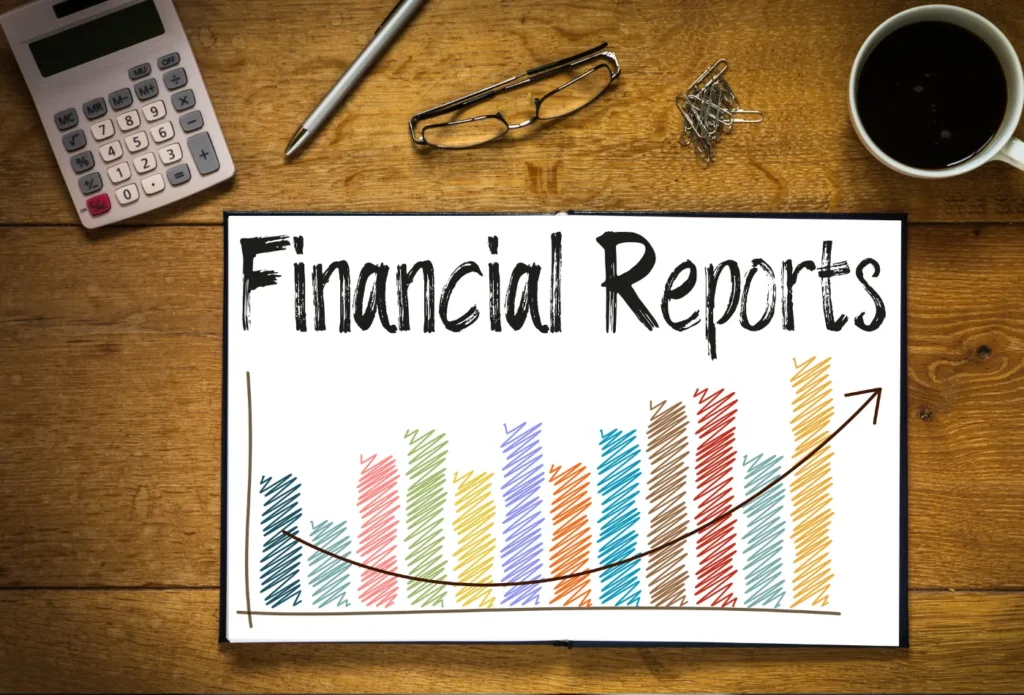Selling a business is a complex process that requires meticulous preparation and attention to detail. One of the most critical aspects of this preparation is accurate financial reporting. In the context of a business sale, accurate financial reporting not only provides transparency but also builds trust with potential buyers, supports valuation, and ensures a smoother transaction process. This comprehensive guide will explore the importance of accurate financial reporting in your business sale, covering key aspects from preparation to post-sale integration.
Introduction
Financial reporting is the process of presenting financial data about a company’s performance, position, and cash flow. Accurate financial reporting is crucial in the context of selling a business because it provides a clear picture of the company’s financial health. This transparency helps potential buyers make informed decisions, facilitates fair valuation, and ensures compliance with legal and regulatory requirements.
Why Accurate Financial Reporting Matters
Accurate financial reporting is essential for several reasons:
- Transparency: It builds trust and credibility with potential buyers by providing an honest depiction of the business’s financial status.
- Valuation: Accurate financial data is critical for determining the fair market value of the business.
- Compliance: It ensures that the business complies with legal and regulatory requirements, minimizing risks during the sale process.
- Negotiation: It strengthens the seller’s position during negotiations by providing solid evidence of the business’s performance and potential.
1. Pre-Sale Preparation
The journey to a successful business sale begins with thorough pre-sale preparation, which includes organizing and ensuring the accuracy of financial reports. This step is vital for attracting serious buyers and setting the stage for a smooth transaction.
Organizing Financial Records
Comprehensive Documentation: Ensure all financial documents, including income statements, balance sheets, cash flow statements, and tax returns, are up-to-date and organized. This documentation provides a comprehensive view of the business’s financial health.
Historical Data: Compile historical financial data covering at least the last three to five years. This data helps buyers assess trends and the sustainability of the business’s financial performance.
Reconciliation: Regularly reconcile accounts to ensure that the financial statements accurately reflect the business’s transactions. This process involves verifying that the recorded amounts match the actual figures in bank statements, invoices, and receipts.
Ensuring Accuracy
Internal Audits: Conduct internal audits to review the accuracy and completeness of financial records. Internal audits help identify and rectify discrepancies before external parties examine the financial statements.
Professional Assistance: Engage professional accountants or financial advisors to review and validate financial reports. These experts can provide an objective assessment and help ensure that the financial data is accurate and reliable.
Accounting Standards: Ensure that financial reports comply with generally accepted accounting principles (GAAP) or international financial reporting standards (IFRS), depending on the jurisdiction. Compliance with these standards enhances the credibility and comparability of financial data.
2. Building Trust and Credibility
Accurate financial reporting is fundamental in building trust and credibility with potential buyers. Trust is a key factor that influences a buyer’s decision to proceed with the acquisition.
Transparency and Honesty
Full Disclosure: Provide full disclosure of all financial information, including liabilities, debts, and any contingent liabilities. Transparency in financial reporting reduces the risk of disputes and fosters a positive relationship with buyers.
Addressing Issues: If there are any financial irregularities or issues, address them upfront with potential buyers. Honest communication about challenges demonstrates integrity and builds trust.
Third-Party Verification
External Audits: Consider having external audits conducted by reputable accounting firms. An external audit provides an independent verification of financial statements, enhancing their credibility.
Certifications: Obtain relevant certifications or attestations that validate the accuracy of financial reports. These certifications can reassure buyers about the reliability of the financial data.
3. Supporting Valuation
Accurate financial reporting is critical for determining the fair market value of the business. Buyers rely on financial data to assess the business’s worth and make informed offers.
Key Financial Metrics
Revenue and Profit Margins: Clearly present revenue streams, profit margins, and any trends in these metrics. Buyers are particularly interested in consistent revenue growth and strong profit margins.
EBITDA: Highlight earnings before interest, taxes, depreciation, and amortization (EBITDA). EBITDA is a key metric used by buyers to evaluate the profitability and operational efficiency of a business.
Cash Flow: Provide detailed cash flow statements to show how cash is generated and used within the business. Positive cash flow is a strong indicator of financial health and sustainability.
Valuation Methods
Comparable Sales: Use comparable sales of similar businesses in the industry to provide a benchmark for valuation. Accurate financial reporting allows for meaningful comparisons and justifies the asking price.
Discounted Cash Flow (DCF): Apply the discounted cash flow method to estimate the present value of future cash flows. Accurate financial projections are essential for a reliable DCF valuation.
Multiples: Use industry-specific multiples, such as price-to-earnings (P/E) or price-to-sales (P/S) ratios, to support the valuation. Accurate financial data ensures that these multiples are applied correctly.
4. Facilitating Due Diligence
Due diligence is a critical phase in the business sale process, where buyers thoroughly examine the business’s financial health and operational performance. Accurate financial reporting facilitates this process by providing clear and reliable data.
Preparing for Due Diligence
Comprehensive Data: Prepare a comprehensive due diligence package that includes all relevant financial documents, contracts, and operational data. This package should be well-organized and easy to navigate.
Data Room: Set up a secure data room where potential buyers can access financial information. Ensure that the data room is regularly updated and that sensitive information is protected.
Addressing Buyer Queries
Proactive Communication: Be proactive in addressing buyer queries and concerns during due diligence. Provide clear and detailed explanations for any discrepancies or unusual items in the financial statements.
Supporting Documentation: Offer supporting documentation for key financial figures and transactions. This includes invoices, receipts, bank statements, and contracts that validate the reported financial data.
5. Negotiation and Deal Structuring
Accurate financial reporting strengthens the seller’s position during negotiations and helps in structuring a fair and mutually beneficial deal.
Strengthening the Seller’s Position
Evidence-Based Negotiation: Use accurate financial data as evidence during negotiations to justify the asking price and terms of the deal. Solid financial reporting can counter buyer objections and support your valuation.
Highlighting Strengths: Emphasize the financial strengths of the business, such as consistent revenue growth, strong cash flow, and profitability. Highlighting these strengths can positively influence the buyer’s perception.
Structuring the Deal
Payment Terms: Accurate financial reporting helps in structuring payment terms that are acceptable to both parties. This includes determining upfront payments, earn-outs, and contingent payments based on future performance.
Warranties and Representations: Clearly define warranties and representations related to financial performance in the sale agreement. Accurate financial reporting minimizes the risk of post-sale disputes related to financial data.
6. Post-Sale Transition
A smooth post-sale transition is essential for maintaining the business’s value and ensuring buyer satisfaction. Accurate financial reporting plays a crucial role in this phase.
Transition Planning
Handover Process: Develop a detailed handover process that includes the transfer of financial management responsibilities. Provide the new owner with all necessary financial data and documentation.
Training and Support: Offer training and support to the new owner’s financial team. This includes explaining financial systems, processes, and reporting standards used by the business.
Ongoing Reporting
Interim Reports: Provide interim financial reports during the transition period to keep the new owner informed about the business’s performance. This helps in maintaining transparency and trust.
Collaboration: Collaborate with the new owner to ensure a seamless transition of financial reporting responsibilities. Open communication and cooperation are key to a successful handover.
Buy and Sell Online Businesses on Macbook Monster
Access expert support, insider tips, and powerful resources to help buyers and sellers succeed. Get the assistance you need today!
Conclusion
Accurate financial reporting is a cornerstone of a successful business sale. It builds trust, supports valuation, facilitates due diligence, and ensures a smooth post-sale transition. By focusing on accuracy, transparency, and compliance, sellers can enhance the attractiveness of their business and achieve a successful sale.
Whether you are preparing for a sale, engaging with potential buyers, or navigating the post-sale transition, accurate financial reporting will help you achieve your business goals. Remember, the key to a successful business sale lies in meticulous preparation, honest communication, and a buyer-centric approach. By prioritizing accurate financial reporting, you can set the stage for a smooth and profitable transaction.







